| Name | Benson Pyloric Stenosis Spreader |
| Lead Time | Lead time advised within 48 hours of order placement. |
| Competitor | |
| Specialty | General Instruments-Ring-Handled Forceps – Intestinal |
| Material Finish | Stainless Steel |
| Grade | Premium Operating Room |
| Units of Measurement | Each |
| Manufacturer | Lexis Industry |
| Sterility | Non-Sterile |
| Usage | Reusable |
Benson Pyloric Stenosis Spreader
Benson Pyloric Stenosis Spreader
6″ (15.0 cm)
Benson Pyloric Stenosis Spreader is a 6″ slim ring-handled instrument with jaws that have serrations on the bulb-shaped, angled tips. The style of this spreader allows it to easily enter into an incision in procedures such as a myotomy. The serrations and bulb-shaped tips are used to force open the two muscle halves and keep it from sliding while the rest of the operation continues.
SKU:
BF-7857
Category: Forceps & Clamps
Description
Reviews (0)
Be the first to review “Benson Pyloric Stenosis Spreader” Cancel reply
Shipping & Delivery
Related products
Adair-Allis Tissue Forceps
9x10 teeth, 6" (15.0 cm)
Adair-Allis Tissue Forceps are 6" long and are primarily used in general procedures in instances such as when diseased tissue needs to be held. The 9x10 teeth on the tips of the jaws provide a sure grasp of the tissue being held, and can also be used to approximate the edges of the membrane that creates the abdominal cavity lining.
Adson-Baby Forceps
Adson-Baby Forceps
narrow, curved, very delicate
Adson-Baby Forceps are typically used to grasp delicate tissue due to during general surgeries, especially in plastic surgery procedures. The very delicate pattern of the forceps includes partially serrated jaws that are narrow and curved. These jaws are also offered in two different lengths and are intended for tissue to be handled carefully.
Adson Thumb Forceps
Adson Thumb Forceps
standard pattern.
Adson Thumb Forceps are handcrafted from surgical grade German stainless steel. Available in a variety of forms: for dressings with a serrated platform or for tissue with a serrated platform and 1x2 teeth. These forceps are also known as pickups, and are by far the most common style of thumb forceps. Each style is also available several different lengths for a comfortable grip
Babcock Intestinal Forceps
Jaws w/ atraumatic parallel serrations
Babcock Intestinal Forceps have jaws with atraumatic parallel serrations that are intended to hold a shorter section of intestine with minimal trauma and constriction. There is a ratchet on the inner side of the ring-handles so that the forceps can lock in place when needed during a surgical procedure. The forceps are polished to a dull, satin finish to minimize glare below operating room lights.
Adson Artery Forceps – Delicate
Delicate pattern, 1x2 teeth, 7-1/8" (18.0 cm)
Adson Artery Forceps are 7 1/8" and are developed with 1x2 teeth in a delicate pattern with either curved or straight jaws to suit different needs. Primarily applied during operations in which arteries need to be grasped or compressed, the teeth on the tips of the jaws interlock to confirm that a tight grip is held.
Allis-Baby Tissue Forceps
Allis-Baby Tissue Forceps
4x5 teeth
Allis-Baby Tissue Forceps contain 4x5 teeth on the tips of the jaws. These jaws are offered in a delicate or extra-delicate style depending on the type of tissue, bowel, or skin that is being held. The 5" or 5 ½" lengths with ring handles are incorporated for added control and maneuverability.
Allis-Babcock Tissue Forceps
Angled to side, 6-1/4" (16.0 c
Allis-Babcock Tissue Forceps are specifically designed to be used during general surgical procedures in which tissue needs to be grabbed while minimizing any trauma that may be produced to the area. Due to the jaw tips that are fenestrated and angled to the side, this forceps may also be ideal for grasping areas such as the uterus or intestines.
Allis Tissue Forcep
Allis Tissue Forceps
standard pattern
standard pattern of the Allis Tissue Forceps are intended for the use of firmly grabbing or holding body tissue during surgery. This pattern includes a ratchet ring-handle with a selection of different sizes and types of teeth to accommodate various medical procedures. These teeth curve to the inside and may cause less harm to the tissue because of decreased general pressure applied to the area.


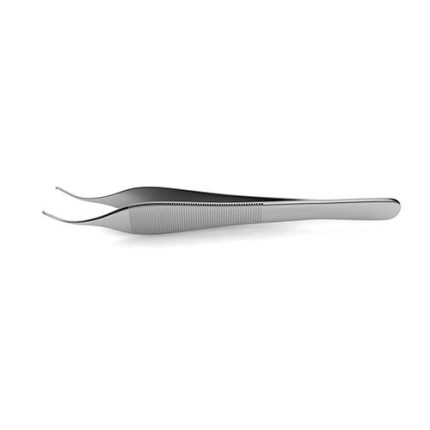
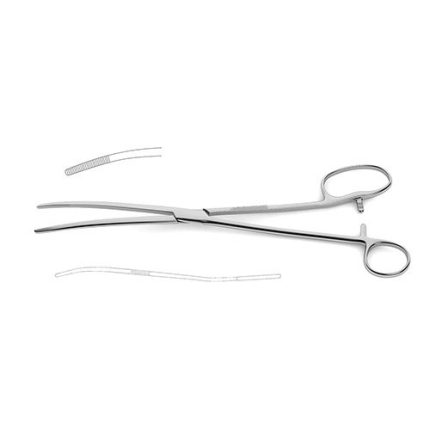
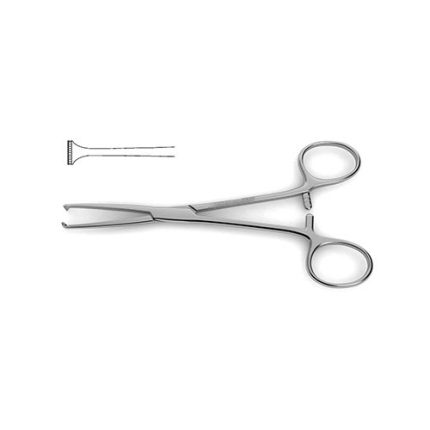
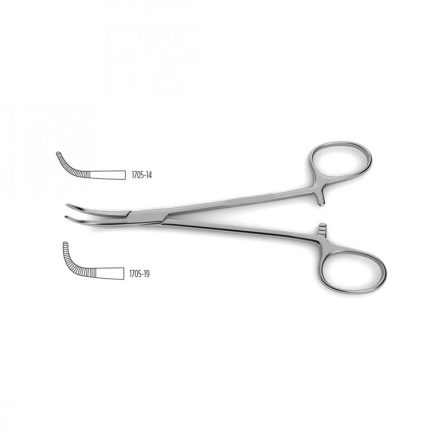
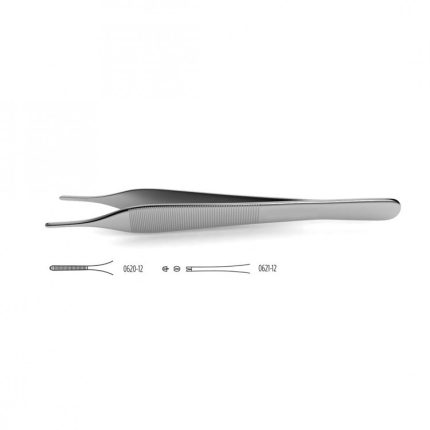
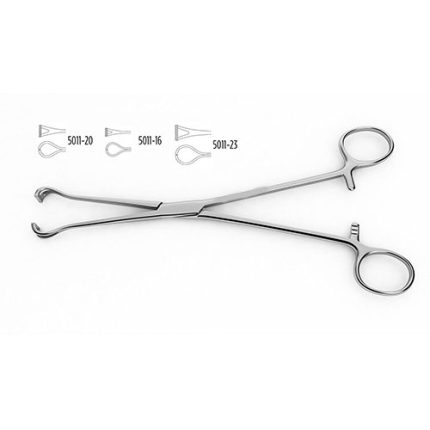

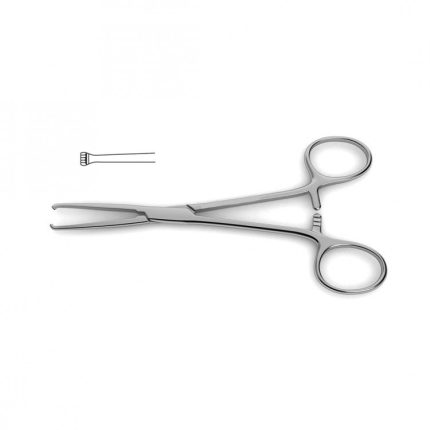

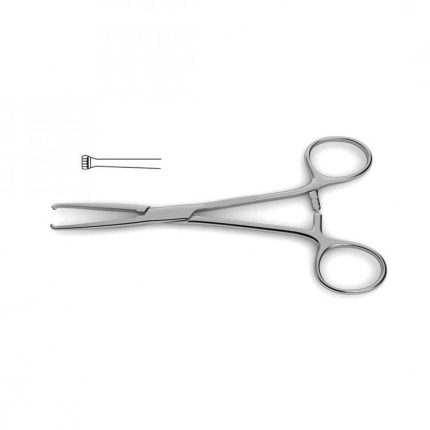
Reviews
There are no reviews yet.